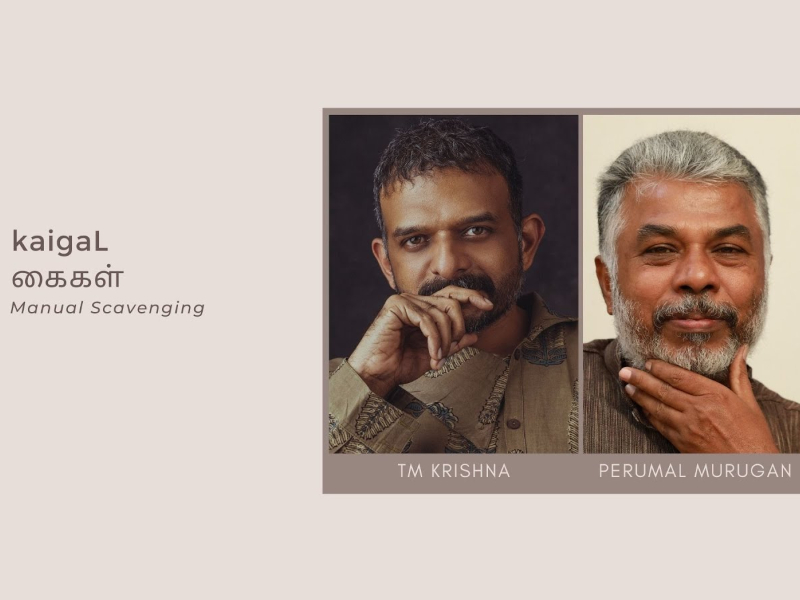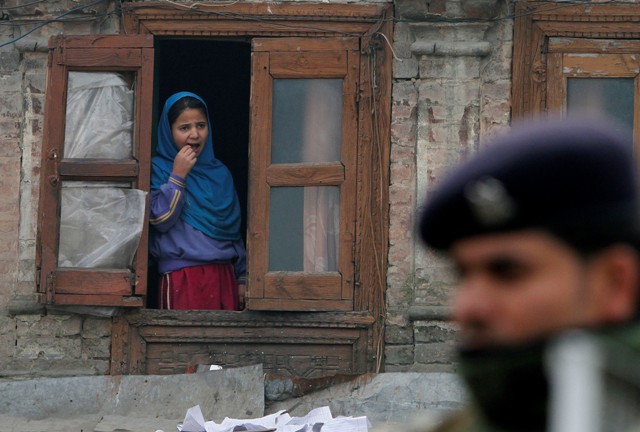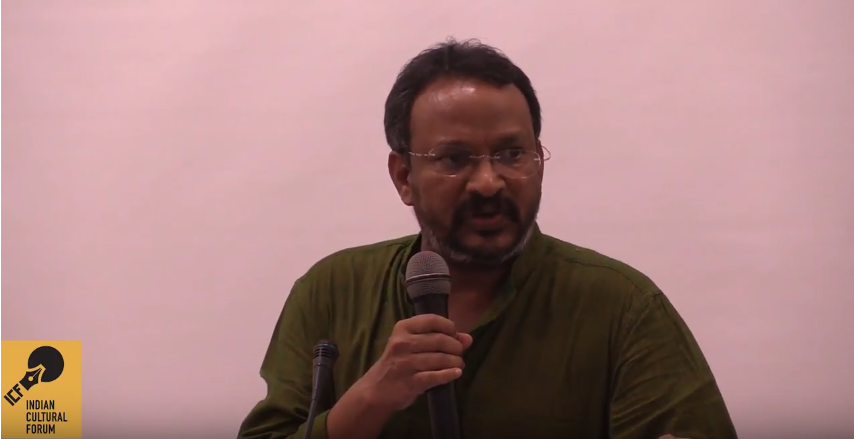In 2015, I had an opportunity to meet Bezwada Wilson for the first time. Since then, I have met him many times and have even conducted an in-depth interview with him, which will be published as a book soon. It is only after meeting him that I was able to understand the life of manual scavengers. We may think that the days of manual scavenging are in the past, but that is not true. Wilson, as a person involved in this cause, provided us statistics of where and how many people are still involved in this practice. It was shocking to me, and I have been thinking about these people since then.
Later, when I met TM Krishna, he suggested that I write a song about manual scavengers. While I had many ideas, it was difficult for me to express those in words. I pondered over it for over a year, wondering what should make the central theme of the song. I wanted the song to talk about the lives of the manual scavengers and raise many questions. These people were scavenging with their hands. So, I wanted to make their hands central to the song. It has has been performed many times by TM Krishna and is well known today.
— Perumal Murugan
Pallavi
Should fetid faeces (shit) be picked by hands?
Should fetid faeces be picked by human hands?
What eternal suffering! Do we care?
Is this civil? Is this fair?
This society, is this civil? Is this fair?
Are we even human beings?
Anupallavi
These are hands that are meant to plough
To eat the food, that they produce and grow
By hugging, mercy, they will show
Hands are gifts from God, we pray and bow
Charanam
To lose one’s life in putrid cesspools
To live in sewers, cleaning stools
To pick up all the refuse and litter
To clean everything and make it better
Do we need a human hand?
Why would that be the right stand?
Also Read | Perumal Murugan’s “Koel Song”
Would we not be spat at?
Spat at by the entire world.
Spat at, spat at, spat at, spat at
Spat at by the graceful world




